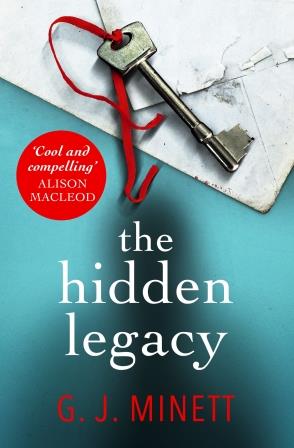
Some books you choose; some books choose you.
‘The Lonely Life of Biddy Weir’ chose me; there’s no doubt about that. It wasn’t a book that held an immediate appeal for me, perhaps because the slightly odd name of the protagonist suggested a dated storyline, perhaps because of the floral cover design, or perhaps simply because the concept didn’t immediately intrigue me and I was distracted by other books with their dramatic blurbs and concepts screaming READ ME NOW!
But everywhere I looked online, people were discussing Biddy. They all loved the book. They all loved Biddy. I began to wonder if I was missing out on something special. Then I had the pleasure of meeting the author and hearing her talk about the long birth process of this, her debut novel, and Lesley Allen was so completely lovely herself that I knew I’d have to give Biddy a try.
What’s it about?
Ten year old Biddy Weir is motherless, friendless and being raised by a father who finds it difficult to express affection or pride in his only daughter. She’s no other family since her cantankerous paternal grandmother died and so there’s no one to help her learn how to be a typical young girl or to advise her father on how best to support her. Oh, and she’s fascinated by birds and their poo.
This isn’t an ideal start to life, but when Alison Flemming starts at Biddy’s primary school her life takes a distinct turn for the worse. Alison informs Biddy that she’s a Weirdo. No, worse than that. She’s a Bloody Weirdo and that’s the worst kind there is. Using Biddy’s vulnerabilities to shore up her own public status as most-wanted-friend, Alison takes increasingly brutal steps to ensure that everyone else knows Biddy is a B.W. too.
Having made Biddy’s life almost unbearable at primary school, our protagonist is horrified to learn that she will be attending the same secondary school as her nemesis. What will happen to her now? Will Biddy survive it?
What’s it like?
Deeply sad. Matter-of-fact. Illuminating.
This is a horrifying insight into the power of bullies and the damage their actions can cause. The most painful scenes are those in which Alison isn’t even interested in tormenting her prey but Biddy tortures herself with her expectation and anticipation of trouble. This insight into the mind of a victim is deeply affecting and helps readers to comprehend why victims of bullying don’t “just report it”.
Allen also reminds us that those who do oppose bullies can become as vulnerable as the victims they seek to protect. It’s frustrating but almost inevitable that the one person who tries to help young Biddy is punished for their efforts in a way that further isolates poor Biddy. This is a deeply sad story and I suspect many readers will be moved to tears by it.
But before you consign this book to the “too sad to read” category, know this: the book opens with an adult Biddy, anxious, trembling, but making a decision to be brave, and the final third of the book re-introduces us to this Biddy. How she develops in this section is genuinely moving and I really enjoyed following her progress. The ending is lovely and I can only hope all victims of such severe bullying are granted their own guardian angels.
Final thoughts
In ‘The Lonely Life of Biddy Weir’ Lesley Allen has crafted a deeply affecting tale of a life brutally and permanently scarred by bullying. In a sense it is a coming-of-age story, as her social isolation means that Biddy retains a childlike innocence and anxiety well past her teenage years, until a significant life event encourages one concerned individual to take more of an interest in her.
This is a story where readers can easily anticipate what will happen in the plot (e.g. what will happen to Penny and Biddy’s friendship) but this helps to build suspense (e.g. how exactly will Alison destroy this alliance?) The characterisation is crucial and is deftly handled, from Alison’s rather pathetic father to Biddy’s impatient and oblivious teachers.
Few characters are truly cruel, most are simply indifferent to or unaware of the causes and depths of Biddy’s suffering. I think this adds a powerful punch to the emotional impact of the story as we are forced to wonder how many Biddy’s walk among us every day. What will happen if we continue to ignore them?
Biddy’s physical escape from her bullies is traumatic enough, but her psychological escape takes many more years. Allen reminds us that it is not enough to do your baseline ‘duty’ (the neighbour who offers a lift in the knowledge it’s likely to be refused; the teacher who enquires after a pupil’s well-being in a sufficiently desultory manner to ensure they need not worry about finding out anything important); instead, we must all actively care for each other, especially those who are naturally more vulnerable.
It’s ultimately beautiful and even uplifting. Recommended.


